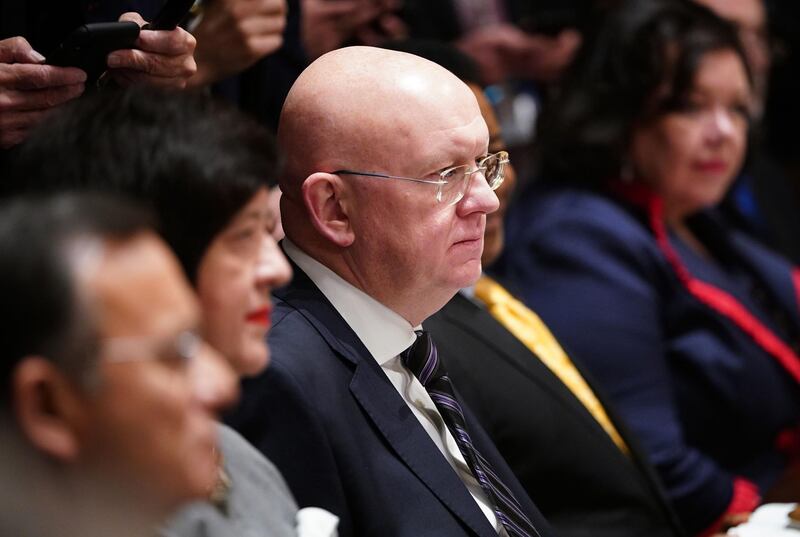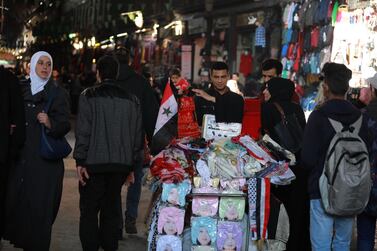The UN Security Council has had a bad year, repeatedly failing to agree common action on Libya, North Korea, Myanmar and Venezuela.
When it comes to Syria, the shortcomings are nearer a decade in duration. And yet it gets worse.
Friday is likely to see more evidence of a breakdown in the council, long the premier arena for co-operation on issues of international peace and security.
More recent meetings have taken on a Cold War feeling, with the chamber becoming a zone for its biggest powers to air their grievances.
Having used its power of veto 13 times to protect Syrian President Bashar Al Assad since 2011, Russia is raising the possibility of doing so again – by disputing the renewal of a resolution that permits UN aid for Syria.
Such supplies have entered from four places in Turkey, Iraq and Jordan since 2014, under resolution 2165.
The measure has until now been annually renewed but before a January 10 deadline to extend it again, other plans are circulating.
Russia's draft resolution seeks to cut the number of aid crossings in half, whereas a joint proposal by Belgium, Kuwait and Germany wants to authorise a fifth entry point.
With Syria's future uncertain, cross-border aid has become political given that UN assistance, only a fifth of total aid to the country, is delivered to north-west and north-east Syria, areas the Assad regime is fighting to reclaim.
The split over aid is indicative of the council's wider problems. All five permanent members – Britain, China, France, Russia and the US – hold veto power but their disputes cause paralysis on the 15-member body.
The US, current chair of the council, remains highly critical of the UN, especially over the Palestinian-Israeli conflict.
At the same time, China and Russia have moved ever closer.
Beyond Syria and disputes over other conflict zones, new fissures are opening up, including a recent argument between China and Germany over the former's treatment of Uighur Muslims.
The potential collapse of six years of agreement over humanitarian assistance to Syria would place tens of thousands of civilians in danger.
UN Secretary General Antonio Guterres has said a renewal is essential. But the UN looks ever more dysfunctional.
Other than China and Russia, the council's members had previously favoured simple renewal of existing provisions.
But the Russian draft resolution forced a rival text, opening the whole matter up to possible changes. That could mean weeks of bargaining.
Vassily Nebenzia, Russia's permanent representative to the UN, on Tuesday failed to rule out using his country's veto power, calling the joint plan from Belgium, Kuwait and Germany unacceptable.
Critics of Russia insist its stance has nothing to do with humanitarian assistance but everything to do with helping Mr Al Assad to win the war.
"I always particularly enjoy it when the Russians talk about humanitarian concerns," a top European diplomat at the UN told The National, sardonically alluding to Moscow's air support for Damascus, which has culminated in dozens of deadly air strikes on civilian areas, including hospitals and schools.
Friday's meeting of the council, where Geir Pedersen, the UN special envoy for Syria, will brief members about political developments, is likely to prompt disagreement about the aid deliveries. Without a consensus, the January 10 renewal remains in doubt.
“The question remains, 'Will Russia veto this text?'" the European diplomat said. “If they aren't going to, there's no point in granting them concessions because they'll never stop. This is how Russia negotiates.”
A resolution needs nine votes to pass and no vetoes by the permanent members.
Last year, Russia and China abstained in the council vote to extend cross-border aid deliveries.
Note: An editing error incorrectly attributed a quote to Mr Pedersen, the UN special envoy for Syria, when it, in fact, came from a European diplomat. The national apologises for this error.






